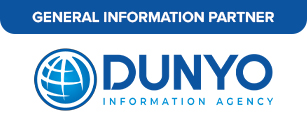News
Almost 200 centralized laboratories will create in Uzbekistan and reform the blood service
The President of Uzbekistan approved a number of proposals for reforming the healthcare system. Until 2030, 198 centralized laboratories should appear in the country, and it is planned to be brought to 100%with donor blood. The procedures for recognizing the registration of drugs according to WHO standards will also be introduced.
On August 19, the President of Uzbekistan Shavkat Mirziyoyev approved a package of proposals for the transformation of the healthcare system, including the reform of medical institutions, laboratory service, education, pharmaceuticals and blood services. This was reported by the press service of the head of state.
According to the presented initiatives, it is planned to mapping and digitizing the current healthcare system, on the basis of which they will develop a master plan for organizing medical institutions with a single approach. It provides for the implementation of new construction standards, a revision of 210 sanitary standards and the development of standard projects for clinics and hospitals.
Today, low trust in the results of the tests and outdated equipment make it difficult to diagnose and treatment. At the district level, 2800 clinics are served only 1,500 laboratories, some of the studies are conducted manually. In this regard, it was proposed to create until 2030 198 centralized laboratories, to introduce a system of internal and external quality control and digitalize processes. A list of free research will also be expanded.
It is proposed to reorient the activities of the Committee of Sanitary and Epidemiological Well-being and public health for preventive measures to prevent non-infectious diseases, mortality of mothers and children, as well as injuries, developing a national program for the prevention of non-infectious diseases.
To improve the blood service in 2026–2030, a program will be implemented to bring the provision of donor blood to 100%, the organization of the production of blood drugs and the introduction of inactivation and irradiation technologies.
Pharmaceuticals
The volume of the country`s pharmaceutical market exceeded $ 2 billion. For further development, the introduction of procedures for recognizing registering medicines according to WHO standards, bioequivalent tests of generics and a differentiated system of registration of medical devices. Contract production and transference of technologies will also be established, pharmacon supervision mechanisms are introduced.
The measures taken are expected to provide the population with modern medical services and drugs, reduce mortality and increase confidence in the healthcare system.
In addition, it is planned to transform the Academy of Nurses to the Academy of Professional Medicine at the Tashkent Medical University, to implement joint training programs with international partners and the NCLEX medical certification system.
During the presentation, the president also announced the construction of the only National Medical Center for Neurology and Neurorebilitation in the Central Asia in Central Asia. The project is implemented with the support of the Japanese agency Jica, which provided a loan of $ 150 million. In the first 5 years, five Japanese managers will participate in the project management.
Source








